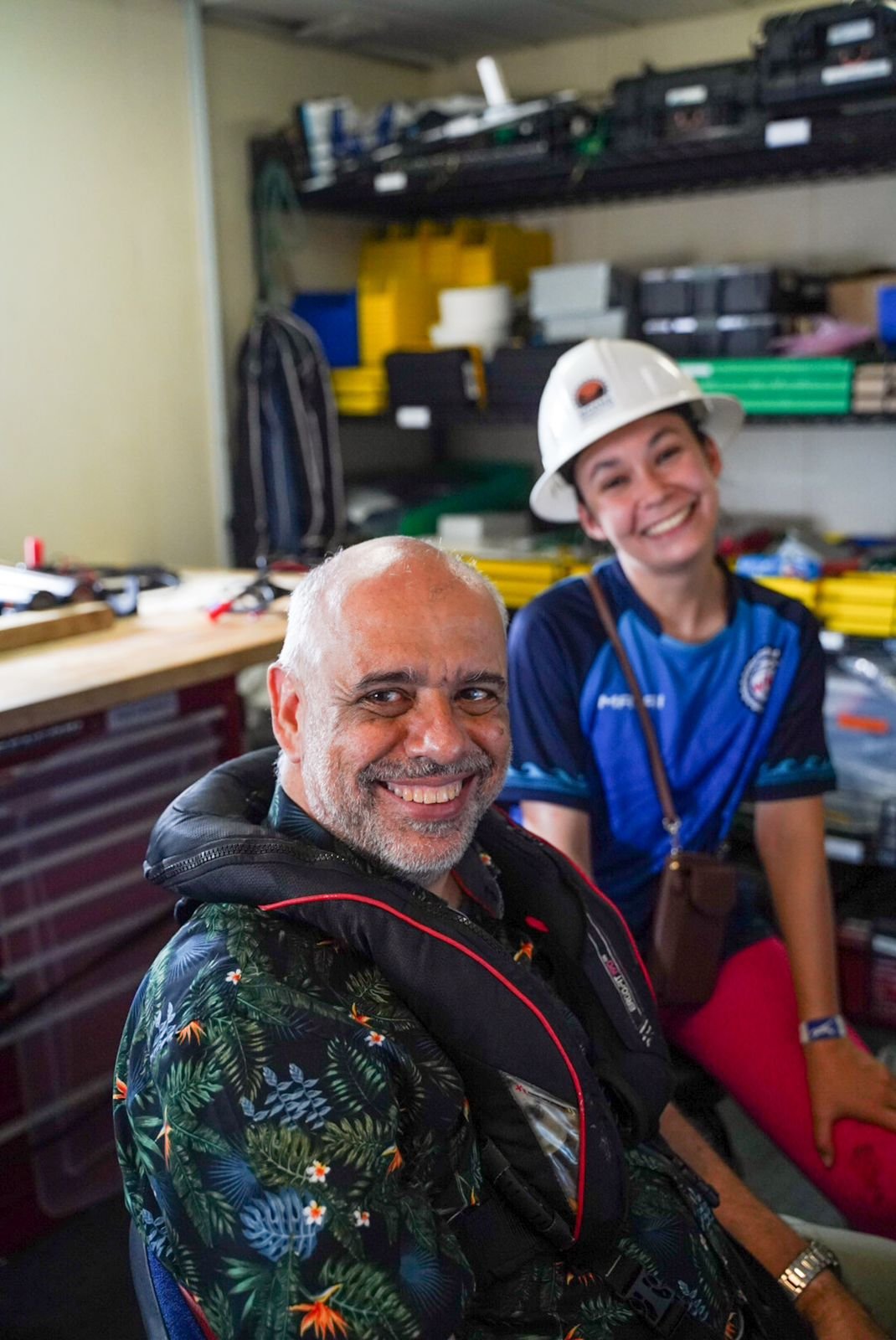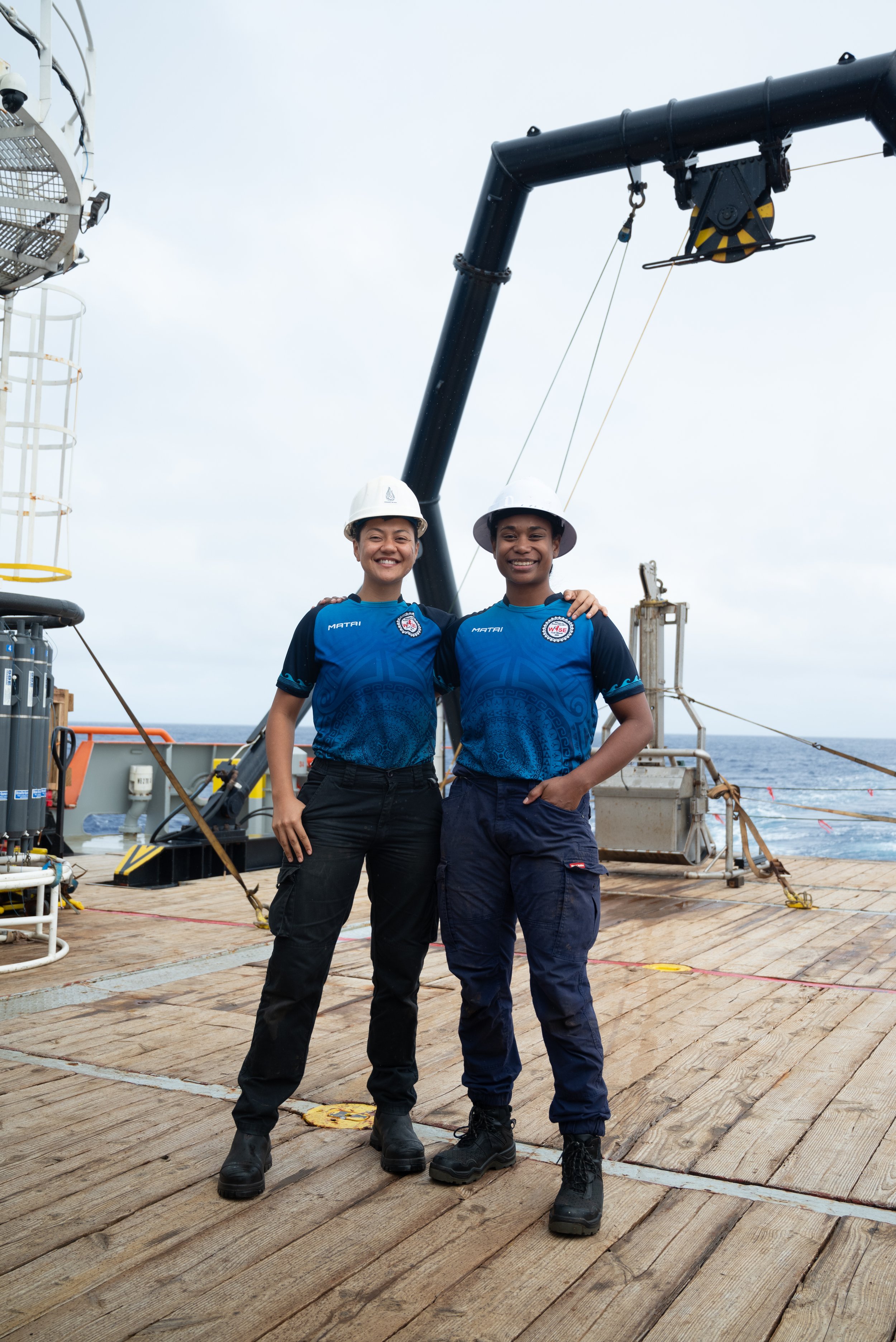Women In Science Expedition
Summary
The Women in Science Expedition (WISE) 2024, conducted from 22–30 September, marked a significant milestone in promoting marine research and capacity building for Pacific women. Led by the Cook Islands Seabed Minerals Authority (SBMA), the eight-day voyage aboard MV Anuanua Moana focused on environmental sampling, biodiversity studies, and hands-on training for 15 participants.
Objectives
1) Facilitate Knowledge Transfer: Enable seasoned deep-sea marine scientists to share their expertise with others;
2) Promote Gender Diversity: Ensure that at least 50% of our science team consists of women from the Southwest Pacific across all levels, with an anticipated composition of around 80% female members;
3) Offer Diverse Experiences: Provide both at-sea and shore-based opportunities for hands-on involvement;
4) Deliver Unique Research Opportunities: Include groundbreaking research initiatives, not limited to training exercises;
5) Enhance Public Awareness: Increase understanding of deep-sea environments, focusing on the potential of seabed minerals, exploration efforts, and the protection of habitats and biodiversity.
WISE Sites
Key Achievements
Empowerment of Women: 80% of trainees were female
Hands-On Learning: Participants gained practical experience and leadership in marine research.
Successful Sampling: Box corers, multi-corers, and baited cameras collected valuable data on the seabed and marine life.
Practical & Resourceful: Showcased cost-effective, short expeditions using local resources and conference opportunities.
Post Expedition Report (PER)
Activities
Sea survival and personal safety training
Baited camera
Multi corer and box corer sampling
Multibeam survey
Capacity Building
Participants gained hands-on experience with seabed sampling equipments, enhancing their technical skills while building leadership, teamwork, and problem-solving abilities.
Notably, some trainees stepped into Chief and Lead Scientist roles. The Chief Scientist led project planning before the expedition and oversaw its execution at sea. Five trainees served as Lead Scientists, each managing specific equipment—overseeing deployment, recovery, processing, and sample storage at designated sites.
By working alongside experts, participants built the confidence and expertise to lead future ocean research, ensuring lasting benefits for local and regional marine science.
Sea Safety Training
Prior to the expedition all WISE participants (who weren’t STCW certified) underwent sea survival training which covered two essential models - Personal Safety Social Responsibilities and Personal Survival Techniques.
Sample Processing
Sample analysis is still underway, as organizations are generously contributing their time and resources, fitting the work around other projects. With WISE operating on a limited budget, this collaborative effort ensures the data is processed despite funding constraints.
Trainees
Ms. Rima Browne, Cook Islands
Ms. Tanga Morris, Cook Islands
Ms. Joyce Uan, Kiribati
Ms. Mereana Atatoa-Carr, Cook Islands
Ms. Chloe Wragg, Cook Islands
Ms. Lisi-Malia Pereira, Samoa/Cook Islands
Mr. James Kora, Cook Islands
Ms. Eva Patai, Cook Islands
Ms. Hinamouera Cross, French Polynesia
Mrs. Mereseini Radidi, Fiji
Dr. Antony Vavia, Cook Islands
Ms. Farida Mustafina, Russia
Ms. Vaine Arioka, Cook Islands
Ms. Alanna Matamaru Smith, Cook Islands
Mr. Nikita Penzin, Russia
Advisors
Dr. Maria Belen Arias, Marine Biologist
Dr. Fanny Girard, Benthic Ecologist
Ms. Rosalyn Fredriksen, Marine Biologist
Dr. John Parianos, Geology and Marine Science
Dr. Pedro Madureira, Geologist

























































